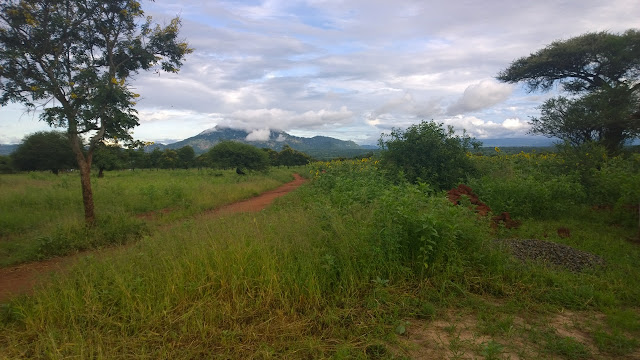Where Are The Passengers?
From 16 October

Classy Taxi in Ipoh - Oct 2009
"It is like this," explained one of the ELCA's big potatoes (not the big potato but one of the big ones) here on a recent visit, "in the past it was missionaries from America who were leading and guiding the church here. Now it is you. It is as if we were driving the car and you were the passengers. Now our positions are switched. YOU are driving the car and WE are the passengers."
A hand shot up from among the clergy gathered for this forum on the ELCA and Global Mission. With it came a question, well, more of a comment really.
"It is true, we may in fact be the drivers now but we look around our church and our country and wonder where are you? where are our passengers? are you even in the car?"
The comment, more of a critique in all honesty, clearly came with baggage attached. See, just a couple decades ago (well within living memory) the Malaysian peninsula was teeming with American missionaries: pastors, teachers, and doctors all here to faithfully do their part. Now, however, due to a variety of reasons both in country and back in the states, the pool of Americans physically present in Malaysia has shrunk to a handful of Young Adults, a Regional Rep to S.E. Asia, and a Pastoral Intern.
The response to the question/comment/critique came next, wrapped in phrases like 'local leadership,' 'capacity building,' 'budget shortfalls,' and a 'reallocation of resources from deployed personnel to indigenous initiatives and programs.' It really was an honest, clear and concise depiction of the current joys, challenges, and guiding philosophies of a national church body engaged in Global Mission in the 21st Century.
The catch, however, is that I'm not so sure it addressed the central concern raised by the question/comment/critique.
What I heard buried in the comment was an expressed desire for relationship, for international fellowship and cross-cultural companionship. Programs and funding are all well and good, but where are the people? Mind you this request for people is not a wistful desire to return to the past. Rather it is an acknowledgment that amazing ministry is being done by the Malaysian church and that ministry begs to be seen, shared, and experienced in the flesh . . . not just submitted in reports to Higgins Road or mentioned as an aside in an occasional newsletter or random blog post.
The critique and response reveal that the analogy of car/driver/passenger needs to be overhauled slightly to be serviceable. In our necessary and vital shifting of resources to focus on capacity building and providing financial support for programs and scholarships at the national level are we really in the car? or are we there as supporters, staying back home and chipping in gas money as needed?
This observation is made not to denigrate that work but to suggest that it is different from truly being a passenger, physically being seated shoulder-to-shoulder, Malaysians and Americans, experiencing together the twists and turns of the journey. . . bonding through the sharing of stories, laughter, and (mis)adventures that mark any good road trip.
I suppose the whole exchange struck a nerve with me because I had just spent a week literally being a passenger in a car that was driven, you guessed it, by local church leaders. I was there accompanying members of a German congregation who came here to see first-hand the work being done by the Malaysian church and to lay the foundation for long term companion congregation relationships between churches in both countries..
The Germans' endeavor struck me as being similar to the initial steps taken to pair congregations in the Saint Paul Area Synod and parishes in the Iringa Diocese of central Tanzania twenty years ago. The dynamic impact that the Bega Kwa Bega companion synod relationship has had for them on both sides of the Atlantic, gives me hope for the covenant relationship being forged between Lauf and Bangsar.
At the same time, the question/comment/critique raised by a local leader here, " . . . but where are YOU?" pains me. The disconnect it points to saddens me. Ultimately it makes me wonder in what way(s) we, as an American church, might respond. . .
Sure, we have national-level program officers, diplomats, and the requisite number of bureaucrats but where, I wonder, are the companions, informal friendships, and long-lasting relationships? What are the stumbling blocks and obstacles in our way? How can we work collaboratively through congregations, synods, and the churchwide office (our 'three expressions' of the church) to address the expressed need of our partners here - a desire to host us, to show us their country and their church, and to share with us that which they too have seen and heard?
These are some of the questions that keep me awake at night . . .
Having set them out, I'll step off my soapbox.


Comments